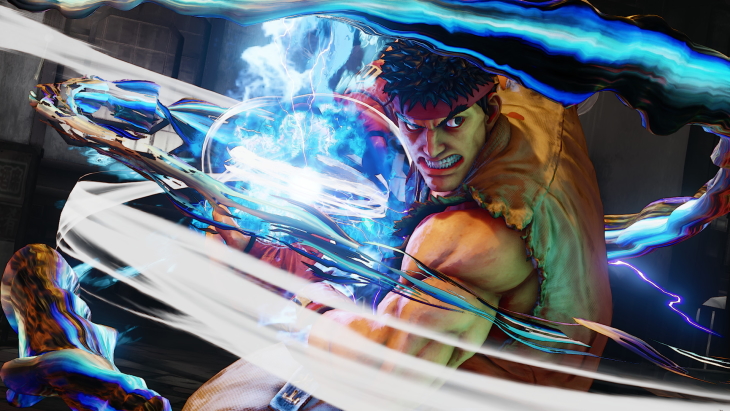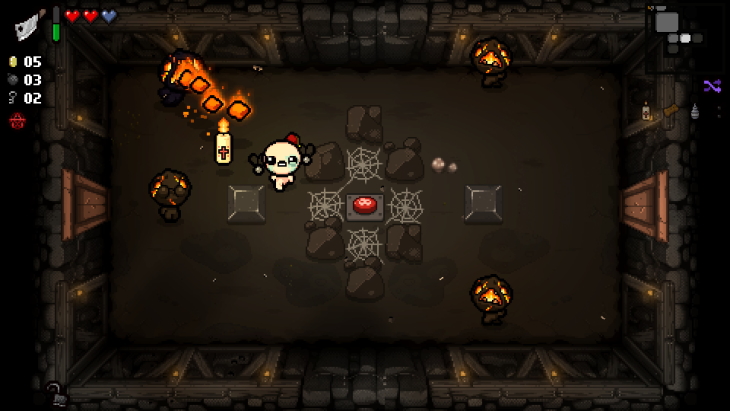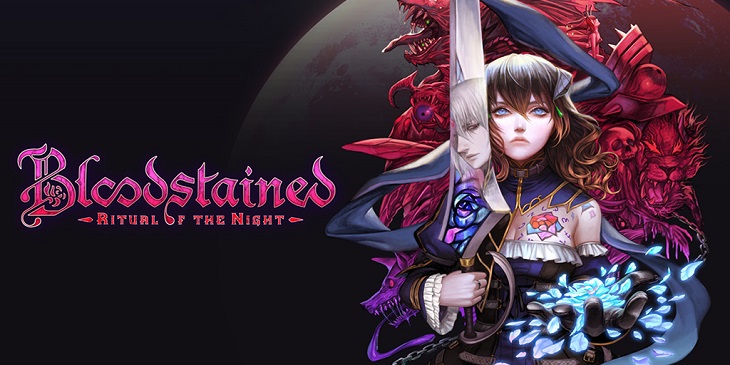There are not too many games like Anodyne 2: Return to Dust. The rough and rugged original PlayStation aesthetic is not something most gamers can get behind. The avant garde narrative and reflective, introspective story set in a surrealist, almost alien landscape might put off most people. Putting the time into Anodyne 2 will reveal it to be a profoundly personal and spiritual work of art.
Despite it being a numbered sequel, Anodyne 2 is very much its own thing. Playing the original is nonessential, since the first game was closer to being a proving ground for the developer to experiment with concepts that are further fleshed out in Return to Dust. It is a strange odyssey that mixes several gameplay styles, set to a very relaxing and ambient synth soundtrack.
Since it released on PC in 2019, Anodyne 2 has been ported to other platforms. While our review for it covers the original PC version, this report will explore the Xbox Series S conversion. How does this retro style 3D adventure game use the Unity engine on the latest Xbox console? Just how does the boost in specs benefit this PlayStation inspired adventure game?
Anodyne 2: Return to Dust
Developer: Analgesic Productions / Melos Han-Tani
Publisher: Ratalaika
Platforms: Windows PC, Linux, Mac, Nintendo Switch, PlayStation 4, PlayStation 5, Xbox One, Xbox Series X|S (reviewed)
Release Date: August 12th, 2019 (Windows PC, Linux, Mac), February 18, 2021 (Nintendo Switch, PlayStation 4, PlayStation 5, Xbox One, Xbox Series X|S)
Players: 1
Price: $19.99 USD
Anodyne 2: Return to Dust is a very unique and special game. The experience is very dream-like at times, and making sense of things is futile.
Absorbing the atmosphere and deciphering the meaning behind things like the random car wash in the valley, or that the protagonist can transform into a car like Michael Jackson in Moonwalker is just something that will be gradually accepted. It won’t even be the weirdest thing in the game.
The concepts and strange imagery is not random. There is an underlying theme connecting these ideas and none of it is by accident. It all seems very deliberate, and this can be proven with the previous game where several of the same ideas were explored.
The world in Anodyne 2 is dying from a plague of dust in the air that is choking the denizens, who can be loosely described as “people.” The dust itself may be a metaphor of what we all were; all matter originating from stardust. A savior is created by the Goddesses who will clean up the world’s dust, which also happens to abnormal heighten the host’s emotional state of being.
Nano Cleaner Nova is the divine tool of the Goddesses, able to shrink down to the size of a cell and enter those who are infested with dust. As a microscopic spelunker, the game switches to a 2D overhead pixelated action game. These sections are very traditional Zelda-like dungeons, with plenty of switches to toggle and environmental puzzles to solve. Out of the entire Anodyne 2 experience, this is the most conventional it gets.
While not pluming the depths of people’s filthy souls, Anodyne 2 aspires to resemble an early 3D game from the PlayStation era, complete with chunky and jagged edges. The developer seemingly went to great lengths to ensure that all models have a low polygon count and that textures would be pixelated. However, it is unrestricted from the less desirable limitations like draw distance, low frame rate, or texture warping.
How dedicated is Anodyne 2 at replicating the PlayStation early 3D graphics? The effort is mostly surface level, and this looks more like this was designed by someone who either did not grow up with early 3D games or did not do their homework. Albeit, it still looks good.
The textures are not artistically designed, and are more likely stock textures from the Unity store. They are far too high resolution in most cases, and often clash with other textures which are very low. There also appears to be some advanced shader effects applied to many surfaces.
These glistening and shimmering planes do admittedly look striking, and the lurid color scheme does evoke some LSD flashbacks. It may not be an authentic take on the PlayStation aesthetic, but Anodyne 2 does look very striking, and makes good on its dream-like and surreal setting.
The use of retro style visuals means the low fidelity visuals obscure the details, allowing imaginations to fill the gaps and subliminally make us ponder what the imagery represents. Anodyne 2 makes extensive use of real-time lighting effects, something that the PlayStation was never able to do, and seeing this effect in a game that tries to emulate the experience does make a surprising impression.
Some areas have a very distinct atmosphere and use lighting to create a mood. Often the colors are brilliant, and the shadows casted add a lot of depth to each scene. Impressively, the developers also implemented specular highlights to many characters and objects. Surfaces will come off as very slick looking, and shine brightly on extremities.
Textures throughout use a wide varieties of styles and techniques for the artists to get their point across. The results are mixed, and it is not sure if this hodgepodge of approaches is intentional. Some instances of textures appear to be crudely drawn details that were done in photoshop and then were made as an alpha layer, only to be haphazardly applied to a 3D mesh.
Real PlayStation textures were effectively pixel art that maxed out at 256 pixels by 256. This hard limitation is ignored in Anodyne 2, where the developers go all over the place. The chaotic and insane mess of styles does add to the atmosphere in a quaint and charming way. It is too bad that the character models themselves can be quite ugly.
A vast majority of the cast and NPCs are very abstract designs with intentionally stiff movement. Nova’s characters design does leave a lot to be desired. For some reason, her anatomy resembles an out of shape hobbit and she has very broad shoulders. She looks like she has a sagging gut, which clashes with the idea that she is supposed to be childlike. She ends up looking much older than she is supposed to be.
Thanks to the low poly and low rez designs, the workload of the visuals is very low. Running on a Xbox Series S is no problem at all, and Anodyne 2 performs flawlessly. As expected; this runs a perfect 60 frames per second. There are no options or settings to tweak; every visual aspect is set in stone.
From the intentional jagged edges, to the muddy, fecal-like textures; nothing can be adjusted. What Anodyne 2 needed is some CRT filters and even a dithering shader to further emulate the way PlayStation games used to fake lighting.
Impressively, Anodyne 2 offers a surprising amount of camera control. Some of the environments can be vast and sprawling and having the ability to pull the camera far away from Nova helps to get a much better view of the land.
The opposite is also true in tight quarters, where Nova would be better off with the player zooming the camera closer. The great degree of camera control is impressive and allows for excellent playability during some platformer sequences.
When traversing the large zones at high speeds in Nova’s car-form, with the camera pulled far away, the frame rate never dropped once. This is expected for a game that was clearly aimed for low spec platforms. What was not expected was just how fast Anodyne 2 loads areas between zones. The load time is almost like a quick blink fade to black that immediately loads the area.
The serene surreal Casio-like synth score does a lot of the leg-work to sell the eclectic atmosphere. When traversing around in the 3D overworld’s the ambiance often feels pensive and soothing due to the composer’s style. It is a stark contrast to more exciting and energetic chiptune style in the 2D overhead sequences.
There was never any doubt that Anodyne 2: Return to Dust would look and run exactly as the designer intended on Xbox Series S. It feels very tight and responsive at all times; the 2D action sequences especially have no noticeable input lag.
The only misstep is the lack of graphical settings to push the retro appeal further. Even the HD menus and fonts could have used more pixelated and low rez options. It may not be the most accurate depiction of PlayStation style visuals (actual PlayStation games often looked better), but Anodyne 2 has a distinctive atmosphere that draws the user into its odd landscape.
Anodyne: Return to Dust was reviewed on Xbox Series S using a review copy provided by Ratalaika. You can find additional information about Niche Gamer’s review/ethics policy here.



